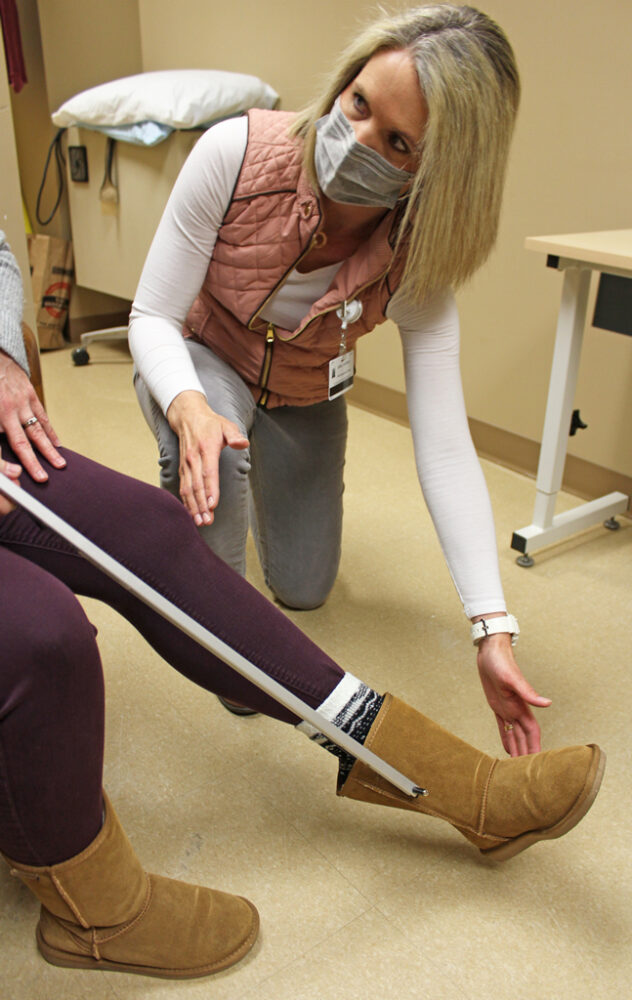April is Occupational Therapy Month. Both physical and occupational therapists help after an illness or injury, but occupational therapists focus on helping patients to regain their ability to perform daily living and work activities. As occupational therapists like to say, they focus on “ADL…activities of daily living.”
Occupational therapy targets different areas to include physical, sensory, and cognitive impairments with targeted treatment to areas mainly in the upper extremities. It focuses on range of motion, strength, coordination, fine motor dexterity, caregiver education, safety, visual skills, and home assessments. Patients could see an occupational therapist after a stroke, joint surgery (hip replacement, knee replacement), elbow injuries, carpel tunnel, and other hand injuries.
Occupational therapists can treat a patient in a healthcare setting or in the patient’s home. Occupational therapists work with all ages, including infant-toddler and school based patients. The plan of care is different in every setting. Therapists will see a patient for approximately 30 to 45 minutes each visit. Treatment plans can range from five to 10 days, in a hospital setting, to three to four weeks in a home-health setting, depending on the type of injury. Most referrals come directly from the patient’s doctor.
Treatment of a patient is a collaborative team effort with the occupational therapist, physical therapist and/or speech therapist, doctor/provider, caregiver, other therapists, and more. “One of the things I like most about my job is the team effort for the patient’s care…communication is key,” said Jenell Hartman, Occupational Therapist for 23 years. 17 of those years have been spent traveling across Dickinson County to treat patients as an employee of Memorial Health System in Abilene. “In a home health setting, family communication is key to the patient receiving proper treatment.”
Different modalities are used in the treatment of an occupational therapy patient to help with recovery. Ultrasound, Electrical Stimulation, Fluidotherapy, and adaptive equipment are all used by occupational therapists. They also do a lot of educating on equipment needs.
If you need, or ever are in need of occupational therapy, the occupational therapists at Memorial Hospital in Abilene and Home Health and Hospice of Dickinson County can help. Hartman is one of three occupational therapists on staff, with Nancy Harding and JoAnna Baker rounding out the team. To receive their services, ask your doctor for a referral. Home Health and Hospice of Dickinson County has offices located in Abilene and Herington to serve you.

